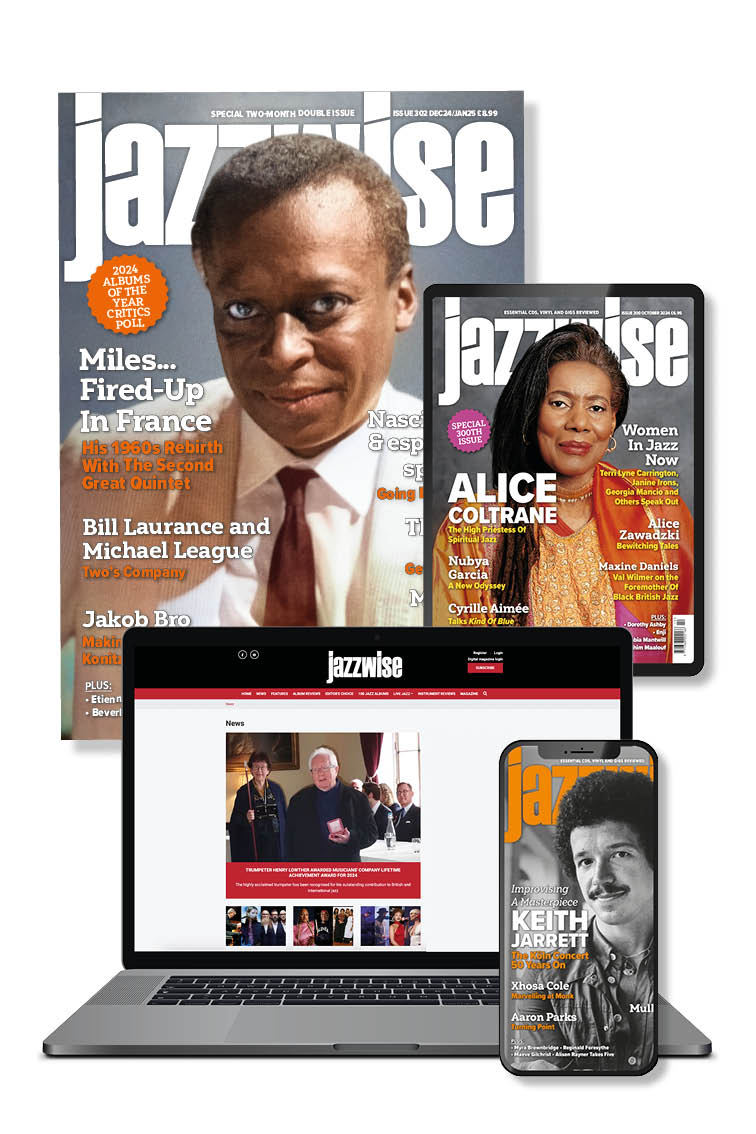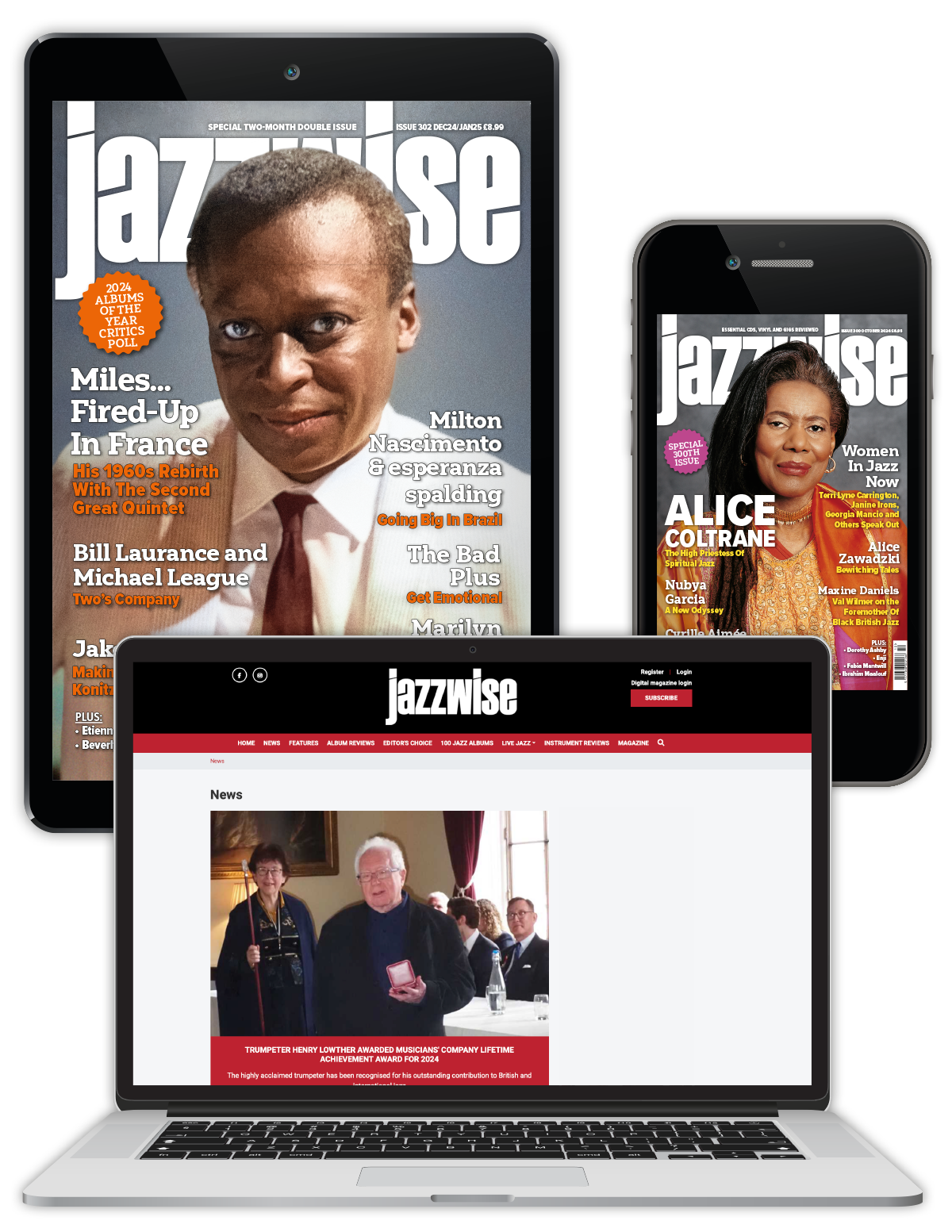Album Interview: Nat Birchall: World Without Form
Author: Daniel Spicer
View record and artist detailsRecord and Artist Details
Musicians: |
Corey Mwamba (vib) |
Label: |
Sound And Spirit |
Magazine Review Date: |
November/2012 |
Catalogue Number: |
NB002 |
RecordDate: |
3-4 July 2012 |
Birchall's follow-up to last year's excellent Sacred Dimension finds him further pursuing his heartfelt devotion to the spirit and sound of John Coltrane's message of peace. As before, there are a couple of tracks that powerfully evoke the work Coltrane's closest musical disciples made in the late-1960s/early-70s, immediately following his death: ‘The Black Ark’ is a tough swinger with declamatory piano chords like a lost McCoy Tyner track. But, overall, this is a more contemplative session, with the majority of tracks settling in tempo-free pools of swelling toms, rippling vibes and oceanic piano. The band – which draws on some of the finest players currently operating in the midlands and the north of England – gets right under the skin of what Birchall's trying to achieve, giving these cuts a very live immediacy. Pianist Adam Fairhall makes an especially deft contribution, summoning the sweetly contented yet sighing cosmic melancholy of early-1970s Lonnie Liston Smith.
Jazzwise spoke to Nat Birchall about the album
You're obviously deeply infl uenced by Coltrane's music.
It is a living music. I find it's just the most powerful, the deepest it just has more meaning than most other music. That's why I think it's what I should try and pursue – to get towards that kind of connection, to whatever he was trying to connect to.
And clearly the spiritual aspect is important to you too.
Yeah. How you define that spiritual aspect is a whole other conversation. It's definitely an aspect that a lot of musicians don't address. To me, that kind of music has a lot more resonance, a lot more meaning, even though I may not be able to express the meaning in words, it definitely communicates to me to a greater degree than a lot of other music.
A lot of it seems imbued simultaneously with both joy and sorrow.
I read this thing by Dave Liebman where he said that the ancient Chinese believed that a beautiful sound had seven elements: two of them were happiness and sadness. That made me think about people like John Coltrane, Charlie Parker and Billie Holiday – the greats – and I can hear that in their sound. It's an integral part of music at that level.
You're a proud northerner, aren't you?
Yeah, I've never felt a great desire to move to London. Paris, maybe, or Amsterdam. But I like the hills. I like nature. I do get a certain degree of peace by being very close to the hills and being able to look out the window and see them, being able to go there. It's good for the soul.
You certainly seem intent on ploughing your own furrow.I used to listen to all the latest recordings – American mostly – and think that I should be playing that way. But when I did the Akhenaten album, those were the first tunes I'd written in a long time. I had this sensation that I was actually playing myself. I wasn't trying to do the latest thing or trying to sound hip or new. The strange thing is that as soon as I started to play like myself, that's when most people said, “You sound like Coltrane.” I'm cool with that. That's just how it comes out.

Jazzwise Full Club
- Latest print and digital issues
- Digital archive since 1997
- Download tracks from bonus compilation albums throughout the year
- Reviews Database access
From £9.08 / month
Subscribe
Jazzwise Digital Club
- Latest digital issues
- Digital archive since 1997
- Download tracks from bonus compilation albums during the year
- Reviews Database access

